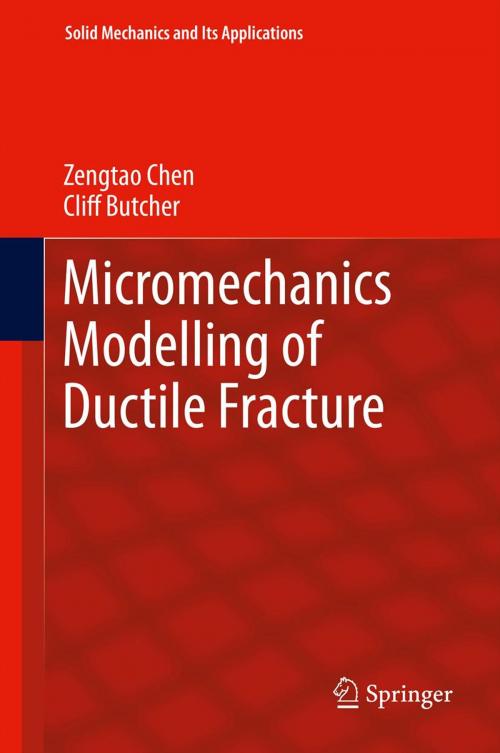Micromechanics Modelling of Ductile Fracture
Nonfiction, Science & Nature, Science, Physics, Mechanics, Technology, Engineering, Mechanical| Author: | Zengtao Chen, Cliff Butcher | ISBN: | 9789400760981 |
| Publisher: | Springer Netherlands | Publication: | April 2, 2013 |
| Imprint: | Springer | Language: | English |
| Author: | Zengtao Chen, Cliff Butcher |
| ISBN: | 9789400760981 |
| Publisher: | Springer Netherlands |
| Publication: | April 2, 2013 |
| Imprint: | Springer |
| Language: | English |
This book summarizes research advances in micromechanics modeling of ductile fractures made in the past two decades. The ultimate goal of this book is to reach manufacturing frontline designers and materials engineers by providing a user-oriented, theoretical background of micromechanics modeling. Accordingly, the book is organized in a unique way, first presenting a vigorous damage percolation model developed by the authors over the last ten years. This model overcomes almost all difficulties of the existing models and can be used to completely accommodate ductile damage developments within a single-measure microstructure frame. Related void damage criteria including nucleation, growth and coalescence are then discussed in detail: how they are improved, when and where they are used in the model, and how the model performs in comparison with the existing models. Sample forming simulations are provided to illustrate the model’s performance.
This book summarizes research advances in micromechanics modeling of ductile fractures made in the past two decades. The ultimate goal of this book is to reach manufacturing frontline designers and materials engineers by providing a user-oriented, theoretical background of micromechanics modeling. Accordingly, the book is organized in a unique way, first presenting a vigorous damage percolation model developed by the authors over the last ten years. This model overcomes almost all difficulties of the existing models and can be used to completely accommodate ductile damage developments within a single-measure microstructure frame. Related void damage criteria including nucleation, growth and coalescence are then discussed in detail: how they are improved, when and where they are used in the model, and how the model performs in comparison with the existing models. Sample forming simulations are provided to illustrate the model’s performance.















